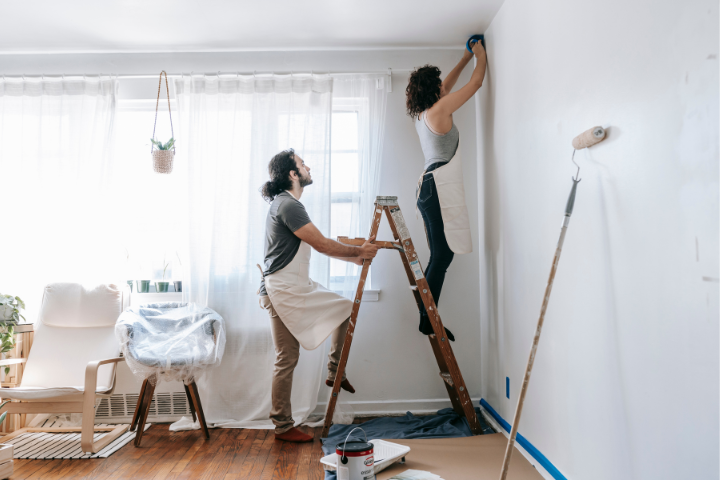One thing most homebuyers have in common is their desire for unique charm, and character. Out with the cookie cutter fixtures, and in with the refinished hardwoods, farmhouse sinks, and unique crown molding. It’s the kind of personality that often makes resale more appealing than new construction. The ideal remodeled home can come with a hefty price tag which is why many boomers and empty nesters are into the idea of rolling up their sleeves and turning a real estate rehab project, into the custom home of their dreams. While fixers aren’t everyone’s idea of retirement bliss, the payoff can certainly be worth it.
Purchasing a house in a less-than-turnkey condition costs less and gives the buyer some wiggle room to negotiate. Sellers may be more motivated to lower the price if they’re not having to deal with pre-sale repairs like replacing damaged carpets or window screens. On the other hand, spending less will mean spending more, so making sure there is enough money in the budget to renovate is the key to a successful investment. Take note of whether the home is a fixer-upper or a hazard. For someone who wants to revamp the entire home, but the state of disrepair involves mold or major structural issues, it may be a better idea to find something with better bones.
DIY is great if someone knows what they’re dealing with but getting a professional to assess the situation before knocking out the walls is important for both safety, and meeting code standards. Add-ons like a garage or extra bedroom must be permitted and inspected to qualify for insurance coverage and be included in the home’s value when it comes time to sell. A licensed contractor can determine any safety issues from unstable decks to foundation problems to ensure the renovation project is on track.
Renovating has the benefit of being cost-effective in the long term. Taking an older home and adding energy-efficient features like double-paned windows, and tankless water heaters can reduce monthly utility expenses, and increases the home’s overall value. Fixtures including ceiling fans, water-saving faucets, and shower heads do double duty by adding style, and energy-saving practicality. Taking on a home in need of some hard work, and due diligence opens up a world of options to customize, and boost sales potential.




